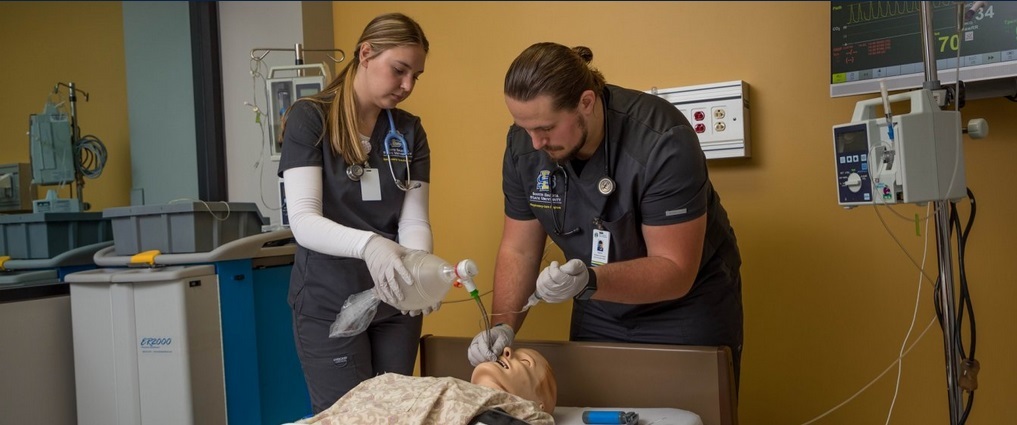


.png)
Program Coordinator/Contact
Lacy Patnoe, Program Director
Department of Allied and Population Health
Monument Health, Rapid City
605-755-3673
Program Information
Respiratory Care is the health care discipline that specializes in the promotion of optimum cardiopulmonary function and health. Respiratory Therapists use science and technology to assess, treat, and manage care by use of diagnostic evaluation for patients with respiratory illnesses which would include the cardiac system. Knowledge of the scientific principles underlying cardiopulmonary physiology and pathophysiology, as well as biomedical engineering and technology, enable respiratory therapists to effectively assess, educate, and treat patients. Respiratory Therapists use technology in the education of patients about their disease and prevention of disease progression.
As a health care profession, Respiratory Care is practiced under medical direction across the health care continuum. Respiratory Care is specifically focused on the assessment, treatment, management, control, diagnostic evaluation, education, and care of patients with deficiencies and abnormalities of the cardiopulmonary system as well as on the prevention of the development of these deficiencies. Critical thinking, patient/environment assessment skills, and evidence-based clinical practice guidelines enable respiratory therapists to develop and implement effective care plans, patient-driven protocols, disease-based clinical pathways, and disease management programs. A variety of venues serve as the practice site for this health care profession including, but not limited to: acute care hospitals, diagnostic laboratories, rehabilitation and skilled nursing facilities, patients’ homes, patient transport systems, physician office, convalescent and retirement centers, educational institutions, and wellness centers.
The respiratory care programs at South Dakota State University (SDSU) are designed as either an associate or bachelor’s degree in respiratory care. The first fall and spring semesters of the A.S. program are spent on a university campus completing general education requirements. After the first year’s classes are completed, the student has class and clinical experiences at the primary clinical affiliate hospitals (Avera McKennan and Sanford Hospitals in Sioux Falls or Monument Health Rapid City). Following completion of the A.S. portion, students can complete the B.S. degree (third and fourth year).
The field of respiratory care provides excellent opportunities for those interested in a dynamic and exciting career in cardiopulmonary sciences. Salaries for respiratory therapists are excellent and compare favorably with other allied health fields. Job opportunities for new graduates are also very good. According to data from the Bureau of Labor Statistics (BLS), employment of respiratory therapists is expected to grow 19% between now and 2029, making RC one of the fastest growing occupations. This increase in demand is expected because of substantial growth of the elderly population and increases in the numbers of patients with asthma and chronic lung disease.
The Bachelor of Science degree in respiratory care continues the work begun in understanding the medical and scientific applications of today’s health care field while incorporating the technology available to today’s respiratory care practitioner.
Accreditation, Certification, and Licensure
Licensure
Immediately upon graduation from the A.S. program, you are eligible to take the credentialing examination of the National Board of Respiratory Care to become a Registered Respiratory Therapist. This credential allows you to obtain a license to work.
Course Delivery Format
Courses are delivered through lecture, discussion, laboratory, and clinical practice experiences.